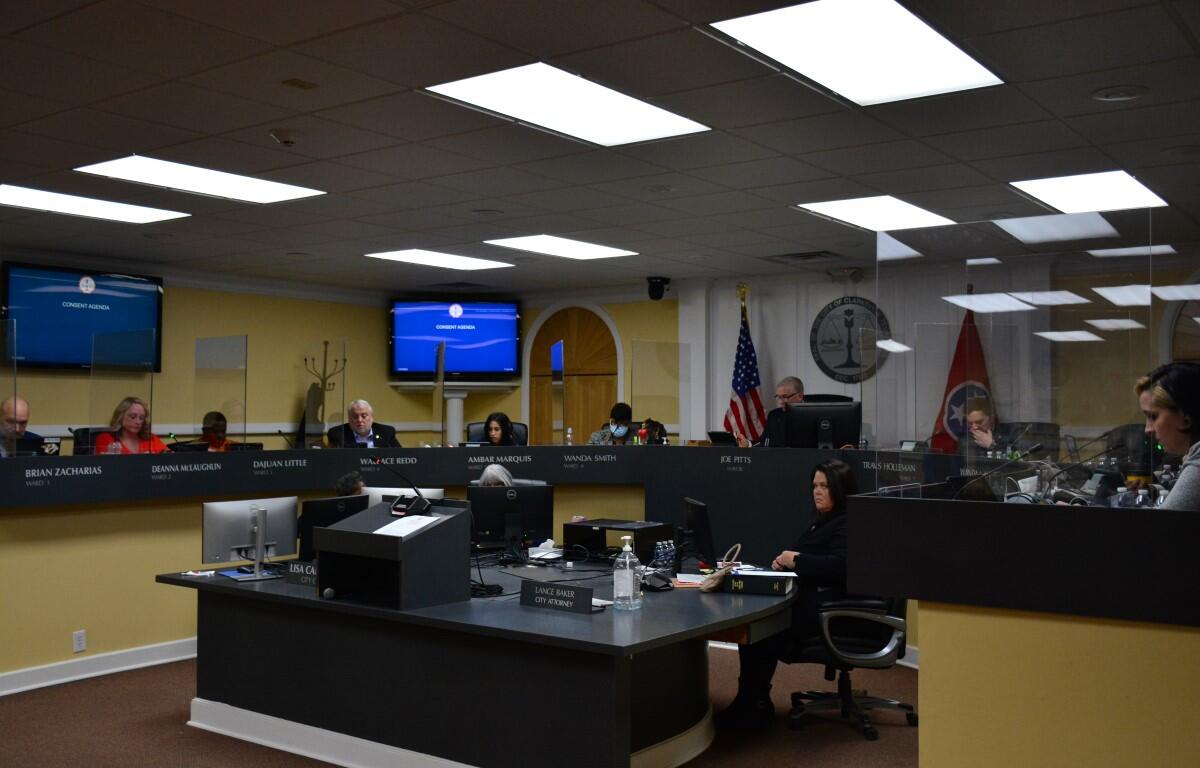CLARKSVILLE, TN (CLARKSVILLE NOW) – The Clarksville City Council approved the first reading of the Vulcan baseball stadium redevelopment on Thursday, with prospects of a possible grocery store, baseball stadium, multi-family neighborhood and hotel.
VP Riverside is looking to rezone around 30 acres of land from General Industrial District (M-2) to a Mixed Use Planned Unit Development (MXU-PUD).

The stadium will be a 2,500-fixed-seat facility with a maximum capacity of 4,000 people. The development also includes:
- A 100-room hotel with 105 parking spaces.
- A brewery with 56 parking spaces.
- 65,400 square feet of retail with 261 parking spaces.
- Open-space sidewalks and plazas.
- A bus pull-off.
- 330 apartment units.
Thursday night, Todd Glover, spokesperson for applicant VP Riverside, described the development as a transformation gateway project for Clarksville, and credited Leadership Clarksville for the idea they created.
He apologized to the City Council for any miscommunication that took place early on. Glover said the hotel, retail and the apartments are 100% privately funded. Glover added that they never intended to pursue a TIF for any of those projects. TIF funding may be requested for the baseball stadium.
Addressing traffic concerns
Glover told the council that based on the traffic study they submitted, creating a left turn lane at Hornberger Lane is one immediate way to break up any traffic congestion that is expected in the area.
He confirmed that 8-foot-wide sidewalks will be placed at the front of the development along College Street, because they care about walkability for the project. Sidewalks will be included leading up to Red River Street but will only be on the back part of the development, according to Glover. This was one problem that was brought up during the meeting by the council.
Glover said another problem that they plan to address is the realignment of the intersection at Red River and College Street.
Need for grocery store
Glover noted that several local officials have told him the Red River district is considered a food desert, so they’ve been actively recruiting to place some type of retail grocery there. They’ve considered options such as Trader Joes and Bodega.
He said the sports and entertainment complex could host weekend farmer’s markets to provide fresh produce for the Clarksville community.
Projected economic benefits
Buck Dellinger, president and CEO of the Economic Development Council, said the development will promote economic growth for the entire 105 acres of the Vulcan Frosty Morn Redevelopment District.
He said project will help strengthen the city’s tax base, “with the potential for increase of at least 140 times the base value,” and the potential property taxes for the 30-acre project would be somewhere in the ballpark of $492,000, according to Dellinger.
With additional baseball and softball tournaments in Clarksville, the projected hotel tax revenue could total $10 million per year.
The EDC expects for the Vulcan redevelopment to create 300 new jobs, however, only 10% of the opportunities will be higher-paid salary positions. Councilperson Karen Reynolds pointed out that is a concern of hers because with that number being so low, most workers may not be able to afford the apartments on the site.
At the end of the presentation, Dellinger reminded those in attendance that proper zoning is required before any financial considerations are weighed, and that the IDB has not been approached yet for a TIF.
Concerns over the redevelopment
Councilperson Wanda Smith said she is worried about traffic congestion in the area and mentioned widening College Street. She also said she didn’t appreciate the applicant not speaking with her constituents in the area and taking their opinions into consideration. Glover responded by saying he’s more than willing to take the time to do so.
Reynolds said the traffic study should be conducted when Austin Peay State University is back in session. For that reason, she made a motion that the zoning case be sent back to the Regional Planning Commission.
Glover said deferring the case would kill the project because their timeline is already set.
The council rejected Reynolds’ motion.
The zoning case passed 10-3 with only Reynolds, Smith and Brian Zacharias voting no.
If VP Riverside were able to close on a deal with its partners by the beginning of 2024, the next step would be the design phase, which is estimated to take around six to eight months.


